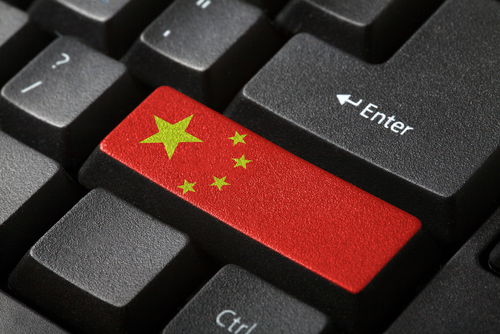Chinese President Urges Adoption Of ‘Cyber Sovereignty’

Sovereign countries should set their own laws for the Internet and others should respect that, according to China President
China has triggered fresh concerns about online censorship after the Chinese president Xi Jinping said countries should respect one another’s “cyber sovereignty” and different internet governance models.
The country has some of the world’s most restrictive online policies for its 650 million Internet users, where only approved content is allowed behind the so called “Great Firewall” of China. Websites such as Facebook, Twitter and Google are also restricted and banned.
China Internet Sovereignty
The Chinese president made the call during his keynote speech to the World Internet Conference in China. The event is sponsored by China and according to the BBC, Reporters Without Borders has urged firms and countries to stay away from the event, as attendance will signal acceptance of China’s strict censorship laws.
That did not stop a limited number of technology firms and countries from attending however. Countries who attended were Russia, Pakistan, Kazakhstan, Kyrgyzstan, Tajikistan and finally Tonga.
 Tech firms were represented by the likes of Wikipedia founder Jimmy Wales, Netflix CEO Reed Hastings, and representatives from Facebook and others.
Tech firms were represented by the likes of Wikipedia founder Jimmy Wales, Netflix CEO Reed Hastings, and representatives from Facebook and others.
During his speech, China’s Xi said that countries have the right to choose how to develop and regulate their internet. But this is not the first time he has made this call. Prior to the previous World Internet Conference, China blocked access to a major content delivery network, and also made a clumsy attempt to force delegates to sign up to China’s demand for national cyber sovereignity, by pushing a joint statement under delegates hotel doors.
Online Security
China’s Xi also iterated a call for countries to work together on internet security, and he reportedly said that no country should pursue “cyber hegemony” or engage in activities that undermine others’ national security.
This call for global internet security governance was reportedly backed by Russian Prime Minister Dmitry Medvedev. Xi advocated a global governance system to “curb the abuse of information technology, oppose network surveillance and hacking, and fight against a cyberspace arms race”.
“There should be no unilateralism. Decisions should not be made with one party calling the shots or only a few parties discussing among themselves,” he added
China has consistently denied Western allegations that it engages in cyber warfare, hacking and espionage against other countries.
In 2010 Google accused Chinese hackers of carrying out attacks on the Gmail accounts of human rights activists. That triggered a huge political row between America and China, and resulted in Google effectively retreating from the Chinese market after refusing to abide by its censorship rules.
Try our China Tech Quiz!